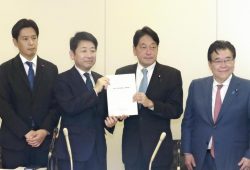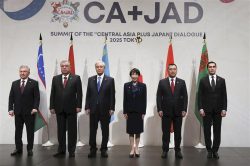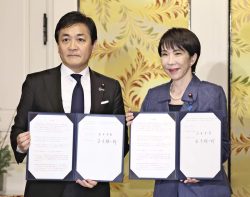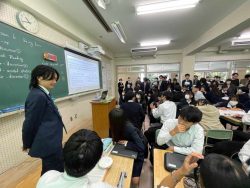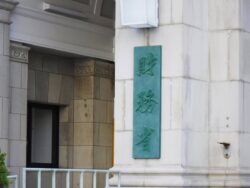Ending Money, Personnel Roles Key to Faction Reform; Kishida, Wishing to Eliminate Factions, Must Rely on Them
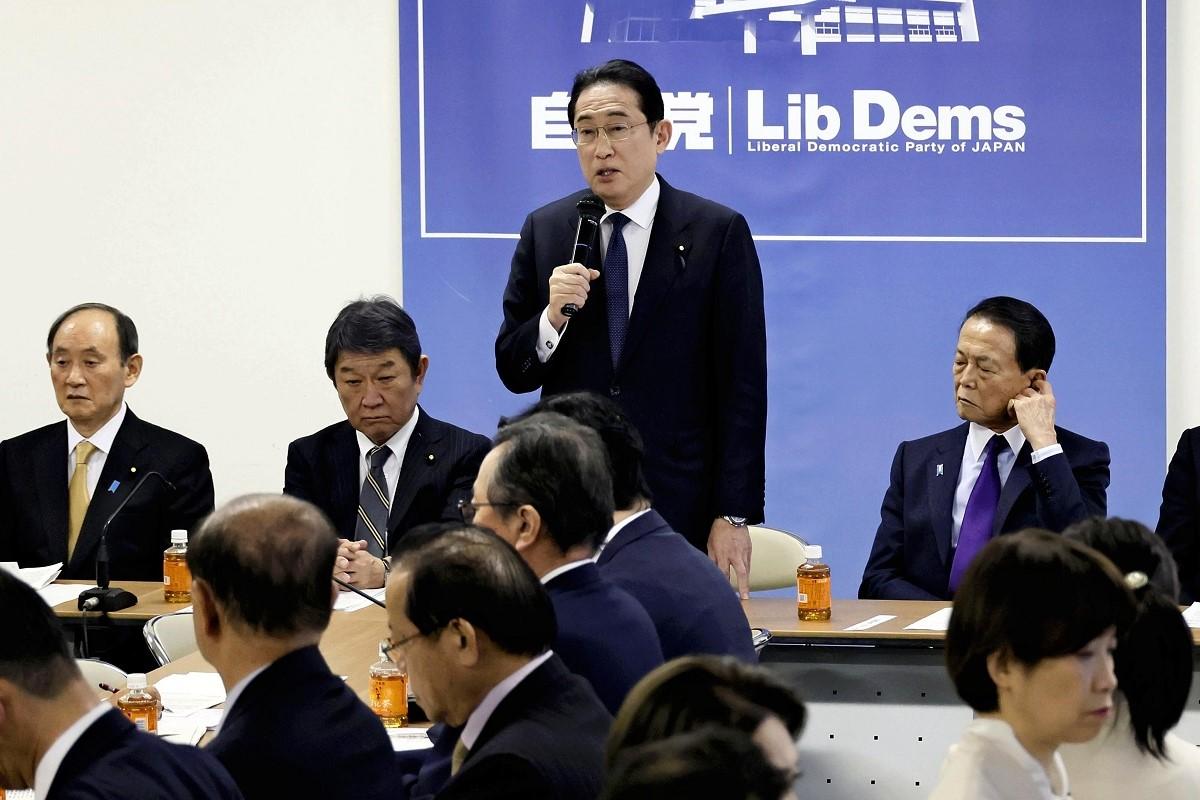
Prime Minister Fumio Kishida, third from left, speaks at a party reform panel at the Liberal Democratic Party headquarters office Tokyo on Tuesday.
21:00 JST, January 24, 2024
The key to reforming the Liberal Democratic Party is likely to be how the party can ensure efficiency by overhauling its internal factions, eliminating their sway over issues of “money and personnel.”
The LDP’s political reform task force did not call for the dissolution of all factions in its draft interim plan. Instead, it proposed a compromise plan to review the factions.
The LDP has a history of trying to dissolve factions, though it has never succeeded.
Prime Minister Fumio Kishida has announced a decision to dissolve his own faction. The Abe and Nikai factions also plan to dissolve.
Three other LDP factions — those led by LDP Vice President Taro Aso, Secretary General Toshimitsu Motegi and General Council Chairman Hiroshi Moriyama — have not announced plans to dissolve, but the prime minister said this does not contradict the direction of political reform.
“I will ask [the remaining factions] to abide by the party’s new rules. In this sense, they will no longer be [old-style] factions [as they were before],” Kishida said after a party reform panel Tuesday.
Under the draft interim plan, the LDP would prohibit its factions from holding political fundraising parties and recommending their members for government and party posts.
Since “money and personnel affairs” are the source of the factions’ power, an aide to Kishida said, the ban is tantamount to calling for the dissolution of factions.
Nevertheless, there are objections to factions continuing to exist as “policy groups.”
“It is so disappointing,” said one young LDP member, “since the prime minister’s announcement has raised public expectations for the dissolution of all factions.”
“The public would understand us better if we were united in our direction as a party. The issue of factions will be the main focus from now on,” former Prime Minister Yoshihide Suga told reporters. Suga, who has no faction affiliation, insisted on dissolution of all factions.
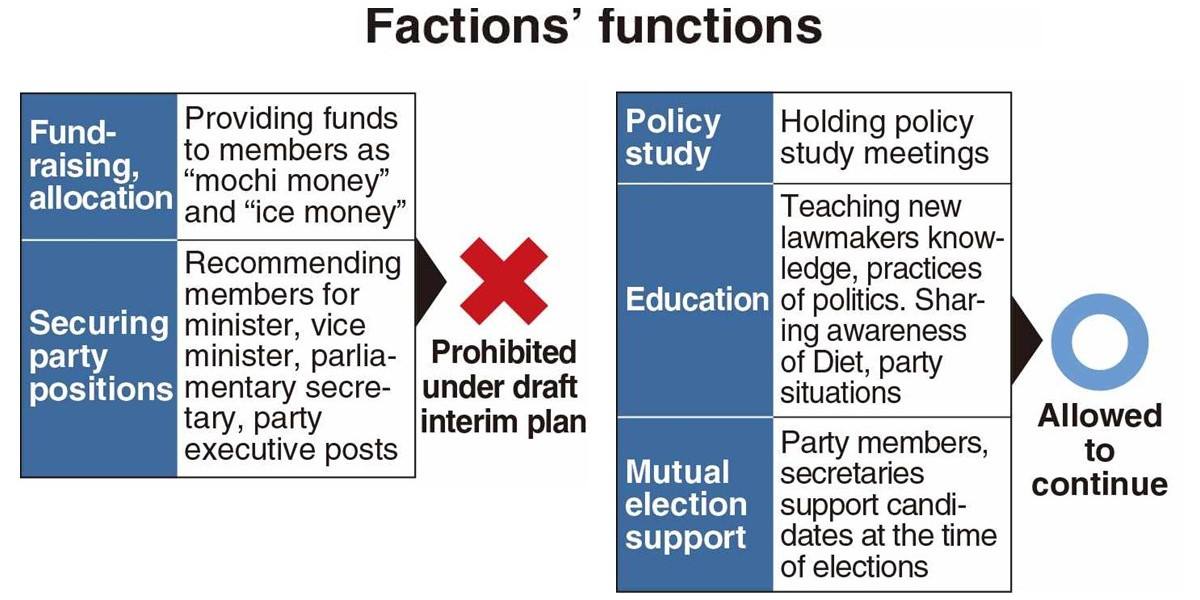
Factions to remain
Neither Aso nor Motegi followed suit when the prime minister left the Kishida faction last month, and their factions have resisted the idea of dissolution.
On Tuesday, Motegi conferred with his faction’s executives in Tokyo, and they agreed to carry on as a political group.
Kishida aimed to dissolve all factions, hoping to send a clear message to the public amid growing distrust in politics due to a series of alleged violations of the Political Funds Control Law.
Yet, Kishida had no choice but to compromise with Aso and Motegi to avoid destabilizing his administration.
Up to the final stage of the draft, the prime minister tried to include proposals for “the departure of party leaders from their factions” and “the abolition of faction offices,” but he finally backed down in the face of resistance.
Revival of factions
It remains to be seen whether the remaining factions can be converted into pure “policy groups.”
In 1994, the LDP announced the dissolution of its factions following a rare election loss to the opposition. All five factions, including those led by Hiroshi Mitsuzuka and Kiichi Miyazawa, closed their offices.
However, as a result of allowing them to morph into “policy groups,” such once-dissolved factions became active again in a tug-of-war for posts surrounding an August 1995 cabinet reshuffle.
Maneuvering for votes ahead of the LDP presidential election that September also intensified, leading to the revival of the factions.
The LDP’s 1994 reform did not prohibit factions from holding fundraising parties.
A mid-ranking Kishida faction member said the prime minister moved more aggressively on party reform this time.
However, Kishida will have to rely on factional connections for reelection in the LDP presidential election in September, and the factions may once again regain power.
Replacing factional functions will also be an issue. The draft interim plan states that the party will establish a mechanism to centrally manage the backgrounds and areas of expertise of its members, to make up for forbidding factions from exercising influence over personnel matters.
The 1994 party reform also established a “personnel committee” to ensure fairness in personnel affairs, but this committee has not been very successful.
In terms of the practice of providing funds to faction members in such forms as year-end “mochi money” and summertime “ice money,” some party members have said it would be fine to call them the money for flowers. There will likely be moves to explore loopholes of this kind.
"Politics" POPULAR ARTICLE
-

Japan to Support Central Asian Logistics Route That Bypasses Russia, Plan to Be Part of Upcoming Summit in Tokyo
-

Japan to Tighten Screening of Foreigners’ Residential Status by Providing Information of Nonpayment of Taxes
-
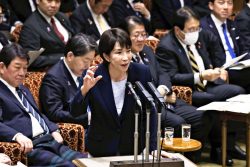
Takaichi Cabinet Approval Holds at 72% as Voters Back Aggressive Fiscal Stimulus, Child Benefits
-

Chinese, Russian Bombers Flew Unusual Path by Heading Toward Tokyo; Move Likely Meant to Intimidate Japan
-

Takaichi Meets Many World Leaders at G20 Debut in Johannesburg; Speaks with Heads of Countries Including Italy, U.K., Germany, India
JN ACCESS RANKING
-

Keidanren Chairman Yoshinobu Tsutsui Visits Kashiwazaki-Kariwa Nuclear Power Plant; Inspects New Emergency Safety System
-

Imports of Rare Earths from China Facing Delays, May Be Caused by Deterioration of Japan-China Relations
-

University of Tokyo Professor Discusses Japanese Economic Security in Interview Ahead of Forum
-

Japan Pulls out of Vietnam Nuclear Project, Complicating Hanoi’s Power Plans
-

Govt Aims to Expand NISA Program Lineup, Abolish Age Restriction


